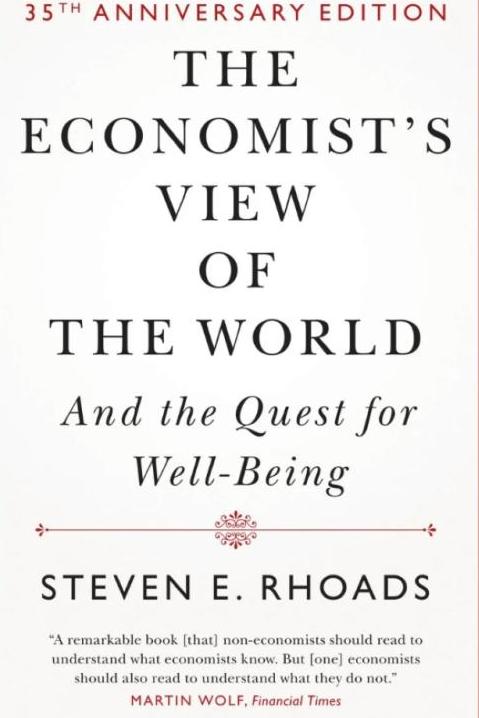Thank you for your message. The IPPA team will get back to you shortly. You first need to login here.

The Economist's View of the World (2021)
(Publisher : Cambridge University Press)
Author(s) : Steven E. Rhoads
Steven E. Rhoads, University of Virginia
Steven E. Rhoads is professor emeritus in politics at the University of Virginia. He received his AB in history from Princeton University in 1961. Steve then spent time in the US Navy, and at the US Bureau of the Budget as the Secretary of the Director's Review. At Cornell University he studied economics, American politics and the history of political philosophy, receiving the PhD in government in 1973. Steve and his wife Peggy live just outside Charlottesville, Virginia.




